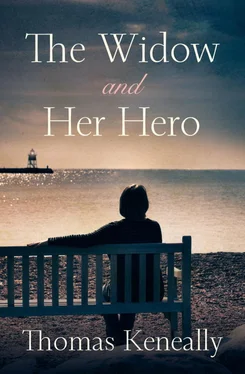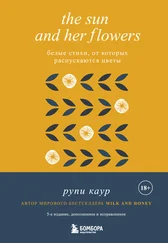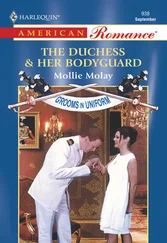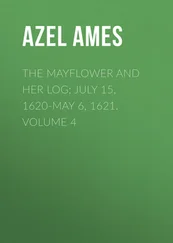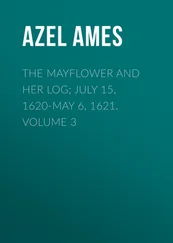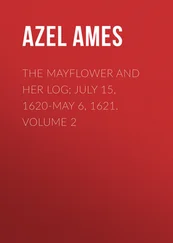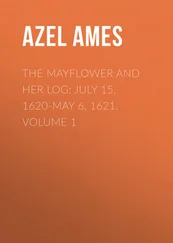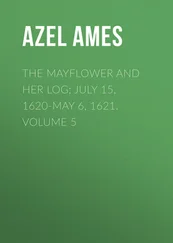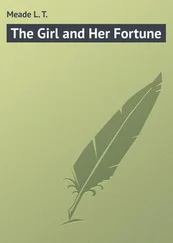I am the last victim of Operation Memerang, and I suppose I can’t blame you for thinking I’m its last war criminal.
I would be obliged if you and your sisters in loss forgave me my neglect, and I seek that favour from you.
I’ll soon be walking the shadows with your brave fellows.
(MAJOR) EDDIE FRAMPTON
But of course, time does erode betrayals and further subtleties of loss. You absorb it all, no matter how terrible. I never thought either that Eddie Frampton deserved the death penalty, though I could see the sense of his last act, and I never wrote his widow a condolence letter. I was helped by the fact that I loved my job. By the mid-1980s, I was and had been for two decades head of English at North Sydney Girls’ High, teaching bright and receptive girls, and fortunate to be liked and respected by them. I was ageing and was spoken of by other teachers as ‘an institution’. Though I had accepted that my education as a widow would never cease, I was a happy woman, a reader, a savourer of gardens, with a companionable husband. Laurie and I were frequently visited by our son, Alex, a structural engineer, a man who relished life and had an acute sense of its value. Though he lacked a few of the literary bones which I would like to have given him, his wife was a first-class conversationalist, an athletic, intelligent woman who sometimes reminded me of Dotty. And of course I had those visits from my post-modernist, gender-studies granddaughter Rachel. We sparked off each other.
I knew from letters from Dotty, now about to retire as a senior editor in a so-called ‘hot’ publishing firm, that she was as harried as I was by an increasing number of Memerang hobbyists and even serious researchers. The chief of them was still the journalist and author Tom Lydon, whose interviews with Major Frampton had triggered the latter’s suicide. Lydon had been shattered for a time by Frampton’s swallowing of his death pill, but after a number of psychiatrists assured him that Frampton’s suicide had been Frampton’s choice and could not have been foreseen, Tom returned to his book, ultimately publishing a fairly flattering version of Memerang entitled The Sea Otters , in which he extolled Doucette and Rufus and Leo and the others and was, perhaps inhibited by his own sensibility, mildly critical of Frampton and Moxham.
After The Sea Otters Tom, who could be seen as conscientious to a fault, became a life-long devotee of Doucette’s story, and others joined him or competed with him in businesslike pursuit of new information. In the end they found out everything that could be known, every little squalor, every little move. About the rest, they had hypotheses on such subjects as what Leo Waterhouse really felt like in the bus from Outram Road prison to Reformatory Road, what mixture of terror and exhilaration – for everyone mentions the evidence of exhilaration! People spoke during the French Revolution about a shining serenity on the faces of some enemies of the state as they travelled in the tumbril to the blade. As if the guillotine were such a total cancellation of the world that it solved many of the victim’s smaller daily anxieties. They no longer travelled in uncertainty.
But I couldn’t bear to discuss that sort of thing with Lydon or any other outsider. It might just encourage them. As it was, they rushed to tell me new information as if I hungered for it. Between these flurries of research by others I felt content, engrossed in my only grandchild, my son’s daughter, a child I felt was very like I had been but thankfully less burdened with painful bush politeness than I was. By now I had seen the sad decline of both my parents, who died with the uncomplaining demeanour of their type, but my world was nonetheless enlivened by Rachel and her capacity from childhood to ambush me with unexpected questions.
Meanwhile, about 1985, Tom Lydon successfully tracked down and visited the Japanese interpreter Hidaka, who had worked on Leo and others. Hidaka had worked under a false name for some decades, precisely because he felt that he might somehow be made accountable for what befell the Memerang men, and Lydon found the man through his disgruntled wife, a former nightclub dancer. Lydon took the ageing man’s photograph outside his broken-down steak-house in Yokohama, with a red banner advertising Suntory at the door and a murk beyond the door to match the mysteries behind his edgy smile. For, like all of us, Hidaka had not even told himself everything! Poor old Hidaka, the former interpreter for the Japanese in Singapore, with his evasions and boasts about a special relationship with Leo and the others!
I stayed away that day because I could not bear to see what was done with them.
That’s one of his claims.
I brought them books. I bought them sweetmeats.
But you did not save them, nor could you, nor did you at a profound level dissent from what was done to them. So you’re no use to me.
And your superiors also valued you for the way the men trusted you and told you things, and you took that credit too!
So to what extent was Hidaka a man of sentimental fraternity, and to what extent a cunning operative?
Every new, well-meaning interviewer and Memerang hobbyist puts the stress-mark between these two possibilities in a different place and then, visiting Hidaka, most of them want to call me up and tell me exactly what they think the formula for Hidaka’s supposed generosity to Leo and the others was. As if that ’s a question on which I would still be working, adjusting still my balance of hatred or gratitude when it comes to Hidaka and the Japanese military code.
Some of the researchers are starting to be true scholars now, even a doctoral student who was a captain in the army. They either examine Hidaka’s record or go to Japan to interview him. This raises in me the old fear that something new might emerge which must be borne, something dangerous to the honour of Leo’s ghost and something perilous to me. More than the human frame could carry.
The young doctoral army captain thinks that Hidaka might have been lucky not to be prosecuted by the War Crimes Commission. After all, he did the interpreting for a number of Kempei Tai interrogations. But then, says the captain, dozens of more senior military men were let off too, through lack of personnel to investigate them or because of the war-weariness of the victors. I am a terminally polite old woman, but inwardly I flinch and there’s a trace of acid in my response. Thank you, captain, for your fascinating assessment.
The young captain completed his doctoral thesis, Planning and Operational Shortcomings of Operation Memerang , graciously sent me a copy, and disappeared from my life.
One enthusiast has told me it rained at 1300 hours as Leo and the others made their way in through the gate of Raffles College to appear before the sitting of the Military Court of Seventh Area Army. He had also kindly taken a photograph of the college motto above the gate: Auspicium Melioris Aevi , Hope for a Better Age.
Just a photograph to him, but I am thereby locked into the journey Leo made that day of his trial, and become raddled with the mad wish that I had been there to argue with the judges and offer my head for Leo’s. Over decades, Laurie, a man of great generosity of spirit, learned to read my moods, which were profound but not always very visible, and accommodated himself to them in the days after I’d been visited by the enthusiasts, when I felt myself hurtling down in a pocket of free air between two ages and two marriages.
Anyhow, on the day of Leo’s trial, when the accused parties dismounted from their Mitsubishi truck, guards took Leo and Filmer and the others in amidst the dripping shrubberies of the college garden, the leaves already steaming as the afternoon sun failed to decide whether it intended a cool afternoon or not. The prisoners entered a lecture hall with lead-light windows. I imagine sudden, renewed rain on the roof.
Читать дальше
